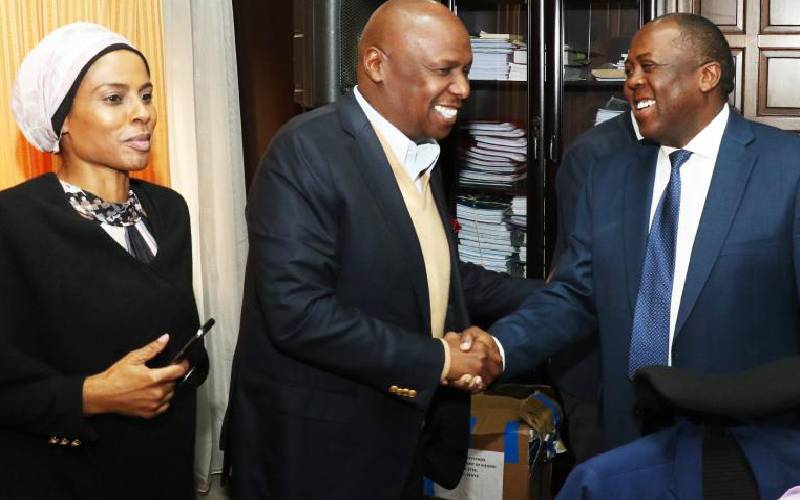×
The Standard e-Paper
Stay Informed, Even Offline

Senate ICT Committee Chairman Gideon Moi (centre), vice chairman Halake Abshiro (left) with Telkom Kenya CEO Mugo Kibati in Parliament. [Boniface Okendo, Standard]
Mobile network operators are hesitant to provide services in marginalised areas over returns.